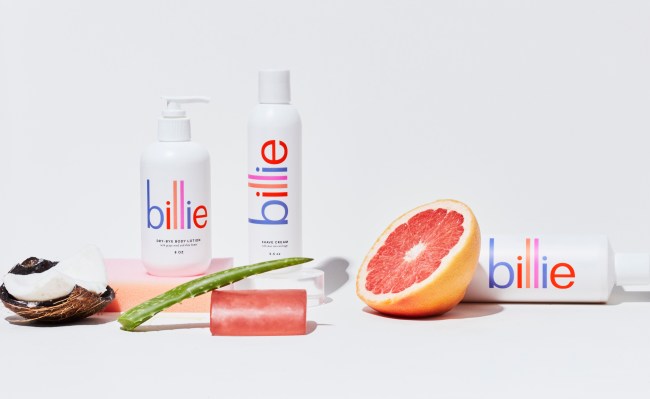Procter & Gamble will not acquire women’s beauty products startup Billie, as previously planned, following action taken by the U.S. Federal Trade Commission to stop the deal from proceeding. In December, the FTC sued to block P&G’s acquisition of the New York-based startup Billie, a maker of women’s razors and other beauty products, on the grounds that the merger would eliminate competition in the wet shave razor market.
Today, P&G and Billie issued a joint statement, expressing their regret over the Commission’s decision to attempt to block their merger, which led to the deal’s termination:
“We were disappointed by the FTC’s decision and maintain there was exciting potential in combining Billie with P&G to better serve more consumers around the world. However, after due consideration, we have mutually agreed that it is in both companies’ best interests not to engage in a prolonged legal challenge, but instead to terminate our agreement and refocus our resources on other business priorities.”
Billie had made a name for itself in the women’s razor market by offering to eliminate the so-called “pink tax,” which refers to how women’s products are often marked up at higher price points compared with similar products aimed at men. It later expanded into the broader beauty market with a focus on more natural products that are free of additives and chemicals, including sulfates, parabens, formaldehydes, GMOs, drying alcohols, synthetic dyes, fragrances, cheap foaming agents, unstable silicones and BHT.
The startup was also particularly successful in capturing the interest of a younger, Gen Z to Millennial-aged consumer, who responded to its mission as well as its modern, and often even progressive, marketing across social media and the web. In its advertisements, Billie would show women with body hair — a message that went against the grain of traditional societal expectations, where women are often shown in marketing messages — including razor ads — as already hairless and smooth.
Billie’s message was that women should feel free to do what they want about their body hair –but for those who prefer to shave, it would be happy to sell them an affordably priced razor.
What also made Billie interesting was its business model. The company offers to ship replacement blades on a subscription basis to its customers, which helped it grow revenues and customer loyalty.
Ahead of the P&G acquisition, Billie was planning to expand into physical retail stores, which would have made the brand a more direct competitor to P&G products, the FTC had said.
“As its sales grew, Billie was likely to expand into brick-and-mortar stores, posing a serious threat to P&G,” noted Ian Conner, director of the FTC’s Bureau of Competition, in a statement issued last month. “If P&G can snuff out Billie’s rapid competitive growth, consumers will likely face higher prices,” he added.
As a result of the FTC’s actions, the companies chose to put an end to their plans to merge as opposed to pursuing further legal action.
The FTC praised this decision in a release issued today. Reuters also reported on the companies’ decision to terminate.
“Procter & Gamble’s abandonment of the acquisition of Billie is good news for consumers who value low prices, quality, and innovation,” the FTC statement reads. “Billie is a direct-to-consumer company whose advertising targets customers who are tired of paying more for comparable razors. The FTC voted to challenge this merger because it would have eliminated dynamic competition from Billie.”
The FTC lawsuit was the second antitrust suit the agency filed in 2020 after it previously sued to block Edgewell Personal Care’s (maker of Schick razors) $1.37 billion deal to acquire the razor startup Harry’s, Inc., another direct-to-consumer brand. As a result, that deal fell through, too.


Recent Comments